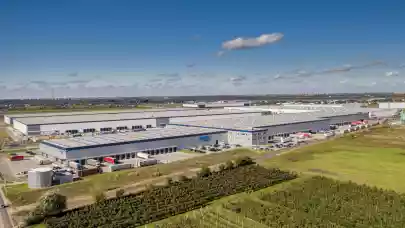
In their global real estate outlook for 2023, the Savills World Research team says that capital value increases in most real estate sectors around the world in 2023 will be minimal, and rental growth prospects limited, but investment activity may rebound in H2 2023.
In an update to Impacts, its global research programme, the international real estate advisor says that it expects investment activity to rebound in the second half of 2023, as the economic outlook improves, and normalises in line with long-term average levels; the amount of ‘dry powder’ available for real estate investment at the end of 2022 was US$828 billion, down year-on-year, but still more than 80% up on 2019 / pre-Covid-19 levels.
To counteract low capital value and subdued rental growth, Savills says investors will focus on core picks and value-add strategies (retrofitting, repurposing, focus on gaps of supply). It therefore predicts:
- Prime offices in the capital city CBD in core markets such as Prague with low vacancy rates will retain their attractiveness for core/core plus strategies. Occupiers are seeking energy-efficient, well-designed office accommodation globally, and green-certified offices remain in low supply. Prime rents should edge upwards due to a combination of inflationary pressures and limited availability of Grade A stock.
- Prime logistics in key trade hubs and countries with rising e-commerce penetration rates will remain at the top of investor strategies. Logistics vacancy rates are at historically low levels in the Czech Republic, UK, Germany, Netherlands, France, and Spain and even as speculative development is set to decline and occupier demand will soften from Covid-19 highs, low existing availability and upward pressures on rents are likely.
- Prime multifamily housing is one of the few asset classes where landlords can regularly rebase rents to capture growth. Structural shortages and relatively low levels of new residential construction in large cities in the US, Japan, Germany, Australia, UK, Nordics, Spain and France will keep them at the top of the investor target list whilst driving income returns, although affordability is increasingly becoming both an economic and political issue. Non-core currency markets (none USD, GBP, EUR etc.) combined with debt finance rates in those locations will see secondary geographies slow.
- Value-add strategies including retrofitting older office buildings to green standards and repositioning assets with high vacancy rates into alternative uses, including life sciences, residential and hotels, will continue to be at the forefront in 2023, however, high construction and renovation costs will remain a major headwind to investors seeking yield and permitting obstacles hurting time linked investment strategies.
- Rising interest rates, causing global pricing corrections, are likely to trigger some distressed sales, although to a lesser extent than in the GFC as leverage levels are lower. Opportunistic investors are likely to take advantage of assets with long-term value through active asset management and repositioning or recapitalising existing capital structures.
- Structural change, including technological innovation, climate change risks and demographics, remain compelling for certain alternative asset types. Savills top pics include data centres and life sciences in the US, UK, Europe, India, China, and Australia, living sectors in the US, UK, Europe, Japan and Australia and renewables infrastructure across all geographies.
Rasheed Hassan, Head of Savills Global Cross Border Investment, comments: “The reality is that as we start 2023 a huge amount of capital is still waiting to deploy into real estate around the world. While in this market buyers are more cautious and need to explore more asset-specific business plans, in the absence of generous levered cash on cash returns and rental growth, the long-term prospects for a property as an asset class remain strong. The current opportunity to acquire prime assets, across sectors, at somewhat discounted pricing is compelling for many investors.”
Stuart Jordan, Managing Director and Head of Investment at Savills Czech Republic and Slovakia, adds: “CEE markets are very unlikely to buck the trends of global price movements, investor sector sentiment or the rapid race towards sustainability but open-end fund structures and long-term investors will find value later in the year once price adjustments have led to value benchmarking.”



